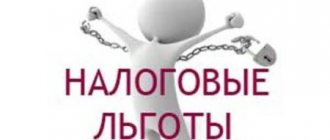Fiscal relationships with departments responsible for taxation are an important aspect in the life of any enterprise, firm or organization. Alas, recently Russian legislation has been increasingly revised, clarified and supplemented with new articles.
Officials responsible for the regulatory regulation of the economic and social life of society do not cease to introduce more and more changes, forcing business entities to closely monitor every update of laws. Changes have also affected the fiscal sphere - businessmen are monitoring tax increases, changes in the forms of reporting documents, rules for providing information and inspection schedules.
The most important thing in this matter is to comply with the rules regarding contributions to the budget and filling out reporting documentation. In 2021, inspections by fiscal officials will take place in a new way, but the government assures that this time all changes will be carried out only for the benefit of entrepreneurs. Let's figure out what's new in this matter the next calendar period will bring!
Criteria for selecting policyholders
Since these services always act together, it is unrealistic to see them separately at certain inspections. They have a general schedule , which can be found on the official resource of the regional branch of the FSS https://fss.ru/. They adhere to it in the process of carrying out control activities.
Each fund strives to include policyholders in its plan list that are of particular interest to it. As a result, for 50% of companies the inspection is initiated by the Pension Fund, and for 50% of organizations - by the Social Insurance Fund.
There are several key criteria by which policyholders are selected:
- Discrepancies in reporting documentation . The appointment of an on-site audit was carried out during a desk audit. For example, if during the inspection service employees discover any flaws in the papers and inconsistencies, a scheduled on-site inspection will be scheduled in the future.
- Reduced wages . If, in comparison with the previous annual period, there has been a noticeable decrease in the payroll within the organization, this is also a reason for its inclusion in the inspection plan.
- Zero report . Organizations that submit zero declarations deserve special attention from inspectors. After all, the salary of an employee who honestly worked his time and complied with the standards cannot be less than the minimum wage. If accrued wages are expected, insurance contributions must also be present.
- Non-taxable amounts of money . In practice, such payments include state benefits, payments to persons temporarily staying in the territory of the Russian Federation, and foreign workers. The plan also includes companies that report significant amounts in these areas.
- Reduced tariffs . In particular, we are talking about organizations operating under a simplified taxation scheme. Companies with reduced tariffs that have not submitted documents for a desk audit have a particular risk of being included in the inspection plan.
- Existence of obligations . We are talking about debts. The plan will definitely include organizations that have certain arrears in contributions. At the same time, the FSS is interested in both organizations with a debt of 1000 rubles and large debtors.
- Taxpayer scale . From the entire list, the inspection structures will select persons who have the highest income (tax base), the maximum SPP indicator and the insurance fund.
- Large amounts of expenditure financed by services . If the manager of an enterprise spends a lot of money on dubious payments, this will be a reason to visit him when planning the next inspection.
- The verification period is approaching . Field activities are carried out once in a three-year period. Therefore, if a company has not been audited for three years in a row, employees will likely impose this measure.
What will the tax audits be like?
The State Duma is already working on a new bill, according to which desk and on-site inspections carried out by fiscal authorities will be limited. A new article of the Code (54.1) was put into effect by a federal legislative act dated July 18. It forms a unified approach to the process of collecting evidence on facts of unlawful calculation of the fiscal base and all kinds of fees to the budget.
Don't miss: Will Russians' pensions increase?
Officials assure that the new legislative initiative will significantly make life easier for entrepreneurs, since it contains rules limiting the use of “aggressive” fiscal optimization mechanisms. The document contains the following points:
- the period during which desk inspections can be carried out will be reduced to 1 month instead of 3 (this period was in effect);
- additional checks within the framework of tax control must now be formalized in a separate act, in which representatives of the fiscal service are required to clearly justify the need for this event. Business entities affected by the additional inspection can not only familiarize themselves with the document, but also file objections to the conclusions or the procedure;
- business entities that submit updated declarations will be examined during repeated inspections only on issues of reducing the tax base;
- business entities will be familiarized with all articles and points according to which their actions can be considered abuses when accounting for expenses and income, as well as the formation of tax deductions when making transactions;
- The rule of presumption of good faith actions of the taxpayer still applies. Fiscal services must prove that information about the economic activities of an enterprise or objects that are taxable was distorted. Fiscal services are required to prove deliberate misrepresentations of facts in tax or accounting reporting in order to impose a penalty due to falsifications, as a result of which a business entity reduced the tax base or incorrectly applied a tax rate, benefit or regime. If there is no evidence of the above facts, then the tax authorities do not have the right to impose penalties;
- The new law includes the following as intentional distortion of information: the use of schemes for “business fragmentation”; concealment of real income or amounts of proceeds received during the sale (more details on these points can be found in paragraph 1 of Article No. 54.1 of the Tax Code);
- To prove the taxpayer’s guilt, it is necessary to confirm that he was aware of the illegality of the actions taken and expected specific consequences. At the same time, in the acts of fiscal audits it is not enough to list operations that the fiscal services consider unfair or illegal - for each item the specific action of the taxpayer (or his subordinates) that led to the offense, as well as the specific consequence for the budget of the Russian Federation must be specified;
- As an evidence base, fiscal authorities can use information obtained through interviewing officials, checking documentation, examining access logs at protected facilities and employee passes, as well as studying formal documents, financial and accounting reports. At the same time, relying on a formal sign in the form of a dubious signature or an indication that the supplier has previously been found in unlawful actions is unacceptable. If the transaction takes place, the taxpayer has every right to reflect the expenses incurred on it. The taxman can only point out circumstances that he has identified - for example, if the transaction was carried out by a counterparty not specified in the documents, or the transaction was carried out to deliberately evade paying tax;
- Another point has appeared in the law - in order to prove guilt in tax evasion, it will be enough for the inspector to show that the contractor could not carry out the work assigned to him or produce the goods (for example, the supplier does not have the necessary facilities or a sufficient number of qualified personnel for this). To avoid trouble, accounting employees must carefully check the counterparties with whom contracts are concluded;
- You should be much more careful when conducting audits - employees of audit services are required to provide information about violations to the fiscal services. Information will be provided upon requests from inspectors, and auditors may be asked for any data or documents that clients have provided to them for review. If the auditor identifies a transaction that seems dubious to him, he will have to transfer such information to Rosfinmonitoring. The specified department will familiarize the tax service with the information, which can immediately send an audit to the address of the enterprise;
- changes are possible in relation to controlled transactions (this item is currently being considered). Presumably, the threshold value of revenue for transactions made within the Russian market can be increased from 1 to 3 billion in national currency. The total revenue limit for transactions carried out with foreign business entities may be 60 million rubles (we recall that previously the legislation did not provide for limits for such transactions).
Don't miss: Minimum pension from April 1 in Ukraine
What does the Pension Fund and the Social Insurance Fund check?
There are several papers that these services need to carry out verification activities. Their list depends on which structure exercises control - the Russian Pension Fund or the Federal Insurance Service.
What does the Pension Fund need?
The main thing that needs to be provided is copies of documents that serve as the basis for the calculation and payment of pension contributions, confirming the correctness of the calculation measures. The summary list includes the following areas :
- constituent documentation;
- orders related to the accounting policy of the enterprise;
- licensing permits;
- confirmation of payment settlements;
- accounting statements (reporting papers and explanatory notes for the year, auditors' opinions);
- accounting registers for settlement actions with personnel and accountable persons, which is related to social security and cash accounting;
- cards that provide individual accounting for accrued remunerations and payments;
- documentation of organizational and administrative type, contractual agreements and additional contracts - orders, collective agreements, labor plans;
- banking and cash papers;
- primary forms and types that help confirm payments to personnel - payroll statements, orders, extracts;
- documents subject to individual accounting actions within the compulsory pension system, including insurance measures.
What does the FSS require?
During inspection activities, the Federal Insurance Service may require a large number of documents from the payer of insurance premiums. The main thing is that they act as a basis for calculating and paying contributions, and also provide confirmation of the correctness of settlement actions.
Their list includes:
- payroll statements;
- sick leave certificates;
- civil agreements;
- papers required for processing benefits;
- sheets of accounting actions;
- work books;
- papers on the investigation of accidents within the production process;
- information about occupational diseases;
- materials for assessing working conditions.
Other criteria for assessing taxpayers
In addition to the above reasons for initiating a tax audit, the following factors may attract the attention of tax authorities:
- The taxpayer was repeatedly removed from tax registration in one branch of the Federal Tax Service and registered in another.
- The accounting data submitted to the regulatory authority contains information about the profitability indicator formed during the reporting period, which differs significantly from the average profitability indicator for the industry as a whole.
- The activities carried out by the enterprise have a high level of risk.
When forming a plan for conducting tax audits, Federal Tax Service employees evaluate each company according to each of the given criteria - the more matches they can identify, the higher the likelihood that the corresponding company will be included in the created schedule.
Preparing for an on-site inspection
Traditionally, activities related to on-site inspections are carried out on the territory of the organization . If it is not possible to provide appropriate premises, then this is done at the place of work of the supervisory authorities.
Only those persons specified in the decision have the right to conduct an inspection. Therefore, before providing access to employees, it is necessary to ensure that the details are verified with the details of the IDs held by the inspectors.
Types of tax audits
In order to ensure that entrepreneurs comply with the current legislation governing the procedure for calculating the amount and paying tax payments, tax authorities conduct regular audits. During such inspections, inspectorate employees study and analyze the organization’s internal documentation and compare the information received with the information specified in the provided tax reporting. In accordance with paragraph 1 of Art. 87 of the Tax Code of the Russian Federation, tax audits are:
- Cameral. Carried out at the location of the tax office. The object of the study is the reporting compiled based on the results of the tax period and submitted by the taxpayer to the regulatory authority.
- Traveling. Conducted at the location of the organization being inspected. They are more extensive in scope and allow you to verify compliance with the procedure for paying one, several or all taxes.
Who is at risk of being blacklisted?
There are several categories of organizations that are at risk of being blacklisted:
- Firms that have inconsistencies in settlement actions within the framework of forms RSV-1, 4-FSS.
- Companies that have large expenses covered by the Social Insurance Fund.
- Organizations that do not provide the required set of reporting documents on time.
- Structures that provide payments to employees if they are not subject to insurance or pension contributions.
- Companies that apply benefits for the payment of SV.
- Corporations with debts in this direction for more than two reporting years in a row.
- Firms that provided data on the amounts of insurance premiums, and they decreased compared to the previous period.
- Organizations that require repeated adjustments.
Thus, if an organization meets at least a few of these criteria, the likelihood that these services will want to visit them increases.
Sick leave: check
Any employee who was absent from work due to disability is entitled to monetary compensation. However, if the sick leave is fake, then the employing organization will not be reimbursed from the Fund. In this regard, a service appeared on the official website of the FSS, such as checking sick leave, which also contains a database of lost or stolen documents.
The ability to correctly calculate or check the accrual of sick leave is also provided by the Social Insurance Fund check site. However, the online check service for valid certificates of incapacity for work is not yet available. If there is any doubt about the authenticity, the individual entrepreneur can send a request for sick leave directly to the Fund.
Registration of results
On the last day of the inspection, the corresponding certificate is issued . Two months are allotted for drawing up the act, which serves as the result of the inspection and the basis for bringing to responsibility.
If the organization does not agree with this decision, it has the right to submit an objection and challenge the decision by attaching supporting documents to a written document. The materials are sent to fund managers, who make the final decisions.
A large seminar on audits in organizations is presented below.
Most organizations have at least once encountered requirements from the tax office. Some companies know firsthand about on-site inspections by the Federal Tax Service. But in addition to the Federal Tax Service, the activities of any employer are controlled by funds - the Pension Fund and the Social Insurance Fund. Nowadays, most of the reporting on contributions is controlled by the Federal Tax Service. The funds check all reporting for compliance with benchmarks, and also pay close attention to the use of benefits, reduced tariffs and reimbursement of funds from the fund budget. What funds analyze, what requirements they impose and how to avoid on-site inspections, we will consider below.
There are two types of checks carried out by funds:
All reports submitted to the Social Insurance Fund and the Pension Fund of the Russian Federation undergo desk audits. Such checks are carried out only for the reporting period. Three months are allotted for the desk audit from the date the report is sent, so the requirement to eliminate discrepancies and errors in the report for the first quarter, sent on April 20, 2018, may come even in July.
Tax inspection plan
It is obvious that conducting an audit (regardless of which of these categories it belongs to) is a very labor-intensive procedure that takes a lot of time and requires the involvement of highly qualified tax inspectors.
It is impossible to check all organizations operating in the territory under the jurisdiction of one branch of the Federal Tax Service in one tax period. That is why, at the end of the calendar year, tax officials draw up a special schedule, which includes individual enterprises that will be subject to audits next year. So, in the end, in each territorial branch of the department, a schedule of tax audits will be prepared, containing a list of organizations subject to inspection, as well as the deadlines within which each of them must be carried out.
There is an opinion that there is simply no plan for tax audits, and the decision on the need to conduct an audit in relation to a certain enterprise is made spontaneously by tax authorities, based on the results of its current activities or as a result of receiving complaints from individuals or legal entities (including counterparties of the enterprise ). In fact, tax authorities still draw up inspection plans - this is indicated by the provisions of letters and instructions issued by the Federal Tax Service, in particular clause 3 of the Federal Tax Service letter “On VAT Refund” dated January 23, 2009 No. ШС-21-3/40.
What does the FSS check?
From 01/01/2017, only contributions for injuries are reported to the Social Insurance Fund. Therefore, the order of checks has changed.
The FSS will continue to conduct on-site inspections. The scope of the review will depend on the period being reviewed. The completeness and correctness of the calculation of insurance premiums for periods before 01/01/2017 will be checked by the Fund’s specialists.
Reviews affecting 2021 and beyond will only cover personal injury contributions and temporary disability and maternity benefits.
On-site inspections will also be carried out jointly with the Federal Tax Service.
The FSS of the Russian Federation checks the calculation and payment of contributions by type of insurance, compensation payments to parents of disabled children, hospital benefits, social benefits, etc.
The main report that the Foundation checks is 4-FSS.
During an on-site inspection, Fund employees analyze the calculations of contributions, the intended use of money for the payment of benefits, etc.
The final stage of on-site inspections is drawing up a report.
There are also unscheduled on-site inspections that take place during:
- liquidation or reorganization;
- the policyholder's request for funds;
- an employee’s complaint about an erroneous calculation of benefits (Part 3 of Article 4.7 of the Law of December 29, 2006 No. 255-FZ).
At the request of the Fund, the inspected organization must submit certified copies of documents proving the accuracy of calculations and payment of insurance premiums.
In practice, FSS specialists most often request:
- report cards;
- certificates of incapacity for work;
- salary slips;
- work books;
- civil contracts;
- acts on industrial injuries, etc.
Service "Transparent Business"
According to the fiscal administration, a new service, “Transparent Business,” will finally begin to operate in Russia. Let us remind you that attempts were made to launch this service and, according to the plans of the tax authorities, users should have gained access to the resource as early as July 25, 2017. It was from this date that tax officials promised to begin posting information on the income and expenses of business entities on the website “pb.nalog.ru”.
Information from accounting reporting documents will also appear there, as well as data on special taxation regimes, headcount, fines, offenses and debts. It was assumed that some information would be published on the resource every month, and some documents would be posted online once a year. Before the introduction of such a resource, all of the above information was not available to members of the general public.
After the launch of the site, everyone, without exception, will be able to get acquainted with potential suppliers of goods or services in order to draw their own conclusions about a particular enterprise, firm or organization, as well as assess the possible risk of working with a specific business entity. However, the technical base of the new site left much to be desired - the resource was urgently closed after the first influx of users. In addition, representatives of the fiscal department have already outlined new recommendations regarding the service:
- All information on it will be posted by tax authorities only once a year. Date of first placement – 06/01/2018;
- the information should not contain information about debt obligations and violations on the part of enterprises and organizations if they repaid the debt on time or paid fines before 05/01/2018. It is expected that this will allow business entities to look better in the eyes of potential counterparties.
What does the Pension Fund check?
Until 2021, the Pension Fund controlled the calculation and payment of contributions for pension and compulsory health insurance. Since 2017, this control has passed to the Federal Tax Service.
The Pension Fund can check the calculations of contributions for periods up to 2021. For verification, the Fund’s specialists can request the following documents (clause 7.4 of the Methodological Recommendations, approved by order of the Board of the Pension Fund of the Russian Federation dated 03.02.2011 No. 34R):
- constituent documents;
- orders on accounting policies;
- licenses;
- calculations of accrued and paid insurance premiums;
- balance;
- cards and analysis of accounts relating to contributions;
- bank statement, etc.
Who's at risk
The Pension Fund of Russia and the Social Insurance Fund have developed criteria that allow them to select organizations for scheduled on-site inspections. In particular, such criteria were set out in the letter of the Pension Fund of the Russian Federation No. TM-30-24/13848, FSS of the Russian Federation No. 02-03-08/13-2872 dated December 21, 2010.
The attention of funds, and now the Federal Tax Service, can be attracted by:
- expenses financed from funds of the Federal Social Insurance Fund of the Russian Federation;
- submission of reports late;
- non-taxable payments;
- application of reduced tariffs;
- inconsistencies in calculations based on the results of desk audits;
- arrears in contributions for several periods in a row;
- constant adjustments to sent reports, etc.
To avoid claims from funds, submit all reports on time and respond to requests. Also carefully check the accrued amounts and keep all supporting documents.
The essence of control actions of tax authorities
The essence of the concept of “tax audit” is a system of activities of departments of the tax service responsible for monitoring compliance with tax legislation, namely:
- correctness of calculations of tax payments;
- timely payment of taxes;
- compliance of the deposited amount with the amount of the calculated payment.
It is the tax authorities who are responsible for verifying the completeness of receipts into state budgets of all mandatory taxes and fees, which will later fill the treasury.
Violations are identified by comparing data from documents examined during the inspection, as well as tax returns that were filed with local tax authorities.
To classify tax audits of individual entrepreneurs, as well as legal entities, it is customary to use various types of classifications:
- according to the volume of information being studied, as well as the location of control actions: 1) desk - verification of tax accruals after their confirmation and acceptance by responsible persons of the regulatory authorities; 2) on-site inspection - an inspection that is carried out at the place of registration and work of the taxpayer and includes an inspection of all necessary documents and calculations to compile a complete report on the actions of an individual entrepreneur or legal entity subject to control. In the event that it is not possible to carry out these activities at the site of operation of the inspection facility, an audit is allowed on the premises of the fiscal authority with the provision of all requested documents.
- according to specific issues of a tax audit: 1) comprehensive - includes absolutely all operations and actions to comply with fiscal legislation for the period specified by the inspectors, not excluding any area of activity of the organization that was subject to audit; 2) selective - the inspection’s focus is on one or more issues of the financial and economic activities of an individual entrepreneur or legal entity; 3) targeted – control actions are aimed at a specific action of the individual entrepreneur or organization.
- according to the method of organization: 1) planned - included in the plan, which is approved by the tax control authorities for the whole year at the end of the previous reporting period; 2) unscheduled - an inspection that is carried out without prior notice to the individual entrepreneur or legal entity. It is a consequence of the receipt by the fiscal authorities of negative information about the object of the audit from legal entities or individuals or from law enforcement agencies.
Different types of tax audits are comparable to each other due to the different directions of classification. That is, a scheduled inspection can be on-site and comprehensive, for example. There are also cases when a control audit is carried out, which includes the same period, the same direction of inspection to confirm that the enterprise has taken actions to eliminate violations. In addition, tax authorities also practice counter audits, which, simultaneously with examining the documents of the audited object, request documentation from their counterparties and partners for a complete reconciliation of data on the organization’s activities.





